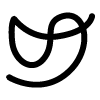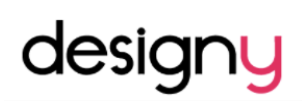2.00b Toy Product Design
Health Protocol
Toy Product Design works best as an in-person class. The hands-on experience that you can get in the lab and working with your teammates cannot be replicated in a remote-only environment. So, we want to keep everyone in the class as healthy as possible over the course of the term so that we can celebrate at the end with an in-person Playsentation!
To help us achieve this, we have put together the following health protocol for 2.00b. Many studies have shown that there is not one magic thing to do to prevent the spread of the coronavirus. Instead, plans that include multiple layers of protection are most effective. We'll need everyone's participation to make this work.
The 2.00b health protocol includes the following personal components:
- daily temperature checks
- N95-level masks
- general good hygiene practices
and additional workplace safety components:
- air cleaners in all lab facilities
- UV hand sanitizers in all lab facilities
- one team per lab, cohorts of teams in each classroom
Daily Wellness Checks
For each day in which you will be participating in a 2.00b activity in-person (e.g., attending lecture, lab, office hours), we ask you to report your temperature for that day (taken after you wake up, not at midnight before you go to bed). You'll be reporting the temperatures to the 2.00b website either via the temperature entry form or using the Arduino WiFi thermometer that you have made. Students not reporting a temperature will not be admitted to lecture or lab for that day.
The purpose of the daily temperature check is to provide a routine of being aware of your own physical well-being. If you have a fever or are not feeling well, please do not attend in-person activities. If you notify the course staff, we will make accommodations so that you may participate remotely.
N95-level masks
2.00b will be providing each student with 3 N95-level (e.g., KN95 or KF94 )masks per week. These masks are to be worn to lectures and labs. Due to the nature of the class activities, physical distancing will not always be possible. The N95-level masks provide a higher level of protection for yourself and others than a cloth or surgical mask. They are tighter fitting and filter finer particles. Wearing these masks or a comparable equivalent will be required for entry to lectures and labs.
MIT Attestation procedure
To gain access to classroom buildings, you will also need to fill out MIT's attestation form in the Atlas app at least 30 minutes before you want to enter the classroom building. Your MIT ID card will not work to open doors until 30 minutes after the attestation has been filled out. Make it a practice to fill out the attestation form the first thing in the morning on the days that you plan to be in-person (or just do it every day!).
Remote participation support
If you cannot come to class for any reason, please let the 2.00b staff know as soon as possible so that we can support you in participating in the class remotely.
For lectures, you should tune in to the livestream at the same time that everyone else is participating in class. We'll link the livestream to the course home page a few minutes before class starts and also broadcast the link over Slack. Most classes will have a mini-quiz and you can email your mini-quiz answers to 200b-ta@mit.edu.
For labs, we can setup a camera so you can watch and participate with your team over Zoom and arrange for a makeup of any hands-on activities in the shop.
For many lectures, we will be giving out materials. If we know in advance that you will not be able to attend a lecture, we will arrange to get the kit to you before the lecture time so that you can follow along with the class in real-time.
General good communication
If at any time you are not feeling well or have concerns, please feel free to email the course staff or the course instructor confidentially. The sooner we know that you are not well, the sooner we can help you and/or take reactive precautions to keep the class well. Let's each Do My Part to keep our class well throughout the term.


